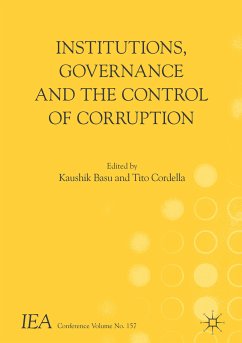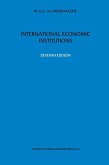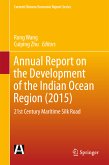The creation of good governance and institutions and structures to combat corruption require determination and passion but also intricate design rooted in data, analysis, and research. In this book, leading researchers from around the world bring to the table some of the best available ideas to help create better governance structures, design laws for corruption control, and nurture good institutions.
Dieser Download kann aus rechtlichen Gründen nur mit Rechnungsadresse in A, B, BG, CY, CZ, D, DK, EW, E, FIN, F, GR, HR, H, IRL, I, LT, L, LR, M, NL, PL, P, R, S, SLO, SK ausgeliefert werden.









